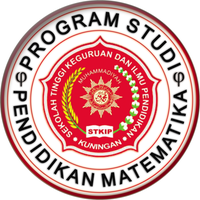Publication Ethics
1. Duties of Authors
- Originality and Plagiarism: Authors must ensure that their work is original and properly cite or quote the work and words of others.
- Acknowledgment of Sources: Proper acknowledgment of the work of others must always be given.
- Authorship of the Paper: Authorship should be limited to those who have made a significant contribution to the conception, design, execution, or interpretation of the reported study.
- Disclosure and Conflicts of Interest: Authors must disclose any financial or other substantive conflicts of interest that might influence the results or interpretation of their manuscript.
- Data Access and Retention: Authors may be asked to provide the raw data in connection with a paper for editorial review, and should be prepared to provide public access to such data if practicable.
2. Duties of Reviewers
- Contribution to Editorial Decisions: Peer review assists the editor in making editorial decisions and through the editorial communications with the author may also assist the author in improving the paper.
- Confidentiality: Any manuscripts received for review must be treated as confidential documents.
- Standards of Objectivity: Reviews should be conducted objectively, and personal criticism of the author is inappropriate.
- Acknowledgment of Sources: Reviewers should identify relevant published work that has not been cited by the authors.
- Disclosure and Conflict of Interest: Reviewers should not consider manuscripts in which they have conflicts of interest resulting from competitive, collaborative, or other relationships or connections with any of the authors, companies, or institutions connected to the papers.
3. Duties of Editors
- Fair Play: An editor at any time evaluate manuscripts for their intellectual content without regard to race, gender, sexual orientation, religious belief, ethnic origin, citizenship, or political philosophy of the authors.
- Confidentiality: The editor and any editorial staff must not disclose any information about a submitted manuscript to anyone other than the corresponding author, reviewers, potential reviewers, other editorial advisers, and the publisher, as appropriate.
- Disclosure and Conflicts of Interest: Unpublished materials disclosed in a submitted manuscript must not be used in an editor’s own research without the express written consent of the author.
- Publication Decisions: The editor is responsible for deciding which of the articles submitted to the journal should be published.
4. Duties of the Publisher
- Ensuring Academic Integrity: The publisher is committed to ensuring that commercial interests do not affect editorial decisions and will assist in communications with other journals and/or publishers where this is useful and necessary.
- Maintaining Editorial Independence: The publisher respects the independence of editorial decisions and does not influence editorial content for commercial gain.






